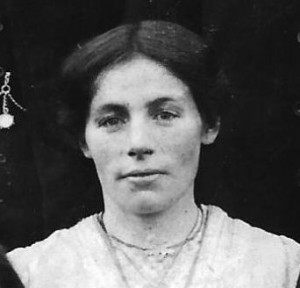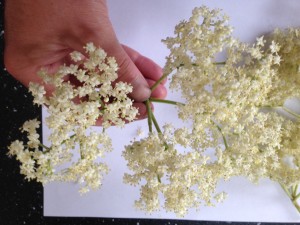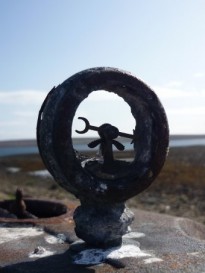Jessie Sclater, my grandma, and her sisters, “the aunties o Kebro”, were all very competent women: working on the farm, managing the house, baking, cooking, brewing and, in grandma’s case, making elderflower wine. Nothing evokes the long, light, summer days of my Orkney childhood like the fragrant, sparkling taste of grandma’s elderflower wine. Food and drink are very much part of the meat of family history, if you will excuse the pun.

Jessie Sclater (1887-1970) as a young woman
Grandma began making elderflower wine in the early 1940s after the family moved from Hogarth, Rendall, to take up the tenancy of Yarpha, home farm of the Smoogro estate in Orphir, the parish where both my grandparents were born and grew up. James, my grandfather, bought the farm after owner and author J Storer Clouston’s death.
Conditions were perfect for elderflower wine: many boor trees, as they are called in Orkney, (sambucus nigra is the botanical name) grew around Yarpha; there was a cool dairy for storage of the maturing drink; and above all the presence of a thrifty and industrious woman. “Thee faither wurked haird but thee mither wurked even hairder”, as another Orcadian said to my mother.

Elderflower heads
In later years my mother and two aunts made the drink and I have been making it for some time too. I hope my nephew and niece will follow suit, maintaining the tradition. I should say that it is a not an alcoholic drink, at least not at the stage where we drank it as children, though it can become rather explosive, bursting glass bottles on occasion, particularly in hot weather.
Until yesterday it had been a poor summer so far this year in Scotland, not least in Orkney, so the elderflowers are late. Here is grandma’s recipe is you want to give it a try. All in imperial measures.
Grandma’s elderflower wine recipe
2 gallons of cold water (16 imperial pints)
3 pounds of white sugar
3 lemons
3 tablespoons of white vinegar
4 elderflower heads (I usually add more – 6 or even 8 depending on size)
Wash the lemons and cut in half, squeeze the juice, add the juice and lemon halves to the water along with the sugar and vinegar. Stir until the sugar is dissolved. Give the elderflower heads a good shake to remove any wildlife(!) but do not wash, add to the mix and stir again. Cover with a cloth and leave to steep for a day (24 hours). Give the lemon halves a final squeeze and stir the mixture again then strain through muslin (cheesecloth) and bottle. Plastic bottles are OK, glass bottles are better; screw tops or well fitting push-in tops are essential. Store in a cool place though some heat is needed in the first few weeks to get the fizzy going. [Update: for some reason, the “fizz” is very slow to work this year and I’m having to keep the bottles in the kitchen for several weeks. You will need to see how things go for you.} Once the drink is fizzy, I store half in fridge and half in the house for a week and then swap over. Might be ready to drink after about a fortnight; taking much longer this year. It is sweet and slightly fizzy but not at all alcoholic at this stage. It probably does become alcoholic with long keeping. Enjoy.

